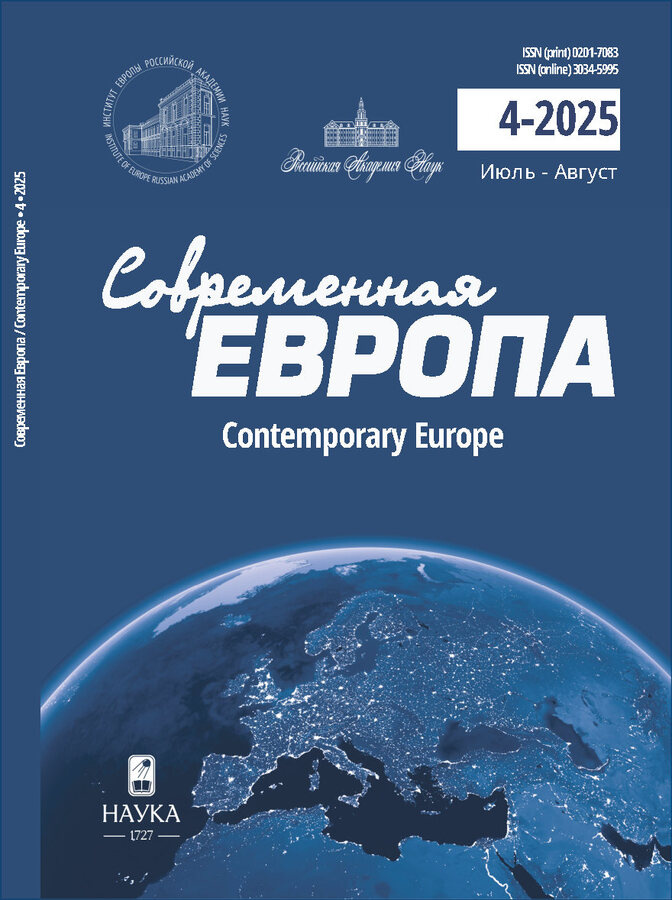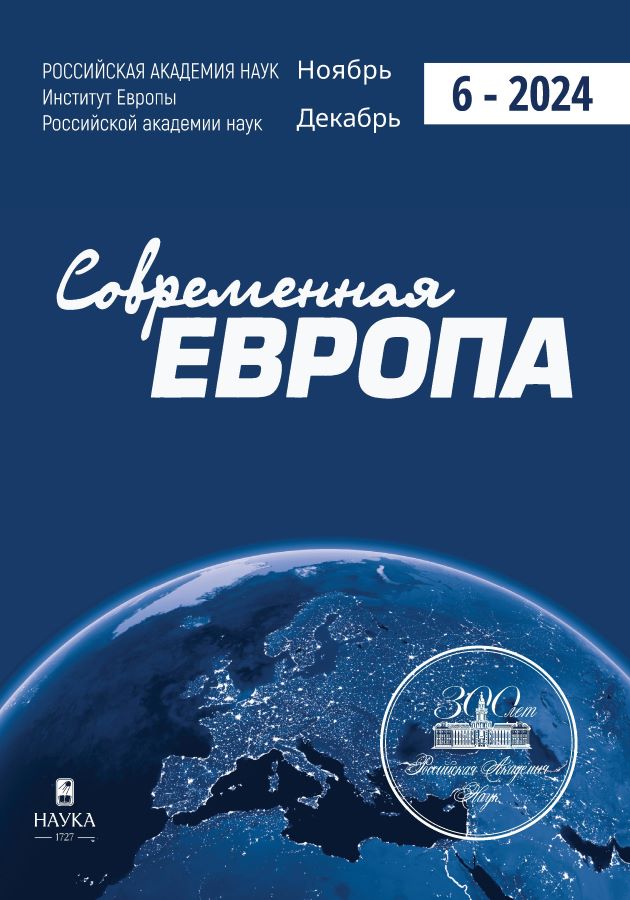ЕВРОПЕЙСКИЕ САНКЦИОННЫЕ РЕЖИМЫ В ОТНОШЕНИИ РОССИИ: КЕЙС БАЛТИЙСКО-СКАНДИНАВСКОГО МАКРОРЕГИОНА
- Авторы: РОГИНКО С.А1
-
Учреждения:
- Институт Европы РАН
- Выпуск: № 6 (127) (2024)
- Страницы: 45-56
- Раздел: ЕВРОПЕЙСКИЙ ПРОЦЕСС: СТРАНЫ И РЕГИОНЫ
- URL: https://rjeid.com/0201-7083/article/view/652295
- DOI: https://doi.org/10.31857/S0201708324060044
- ID: 652295
Цитировать
Полный текст
Аннотация
В статье проанализирована эволюция комплексного антироссийского санкционного режима Запада в целом и европейских санкционных режимов в частности. Проведен анализ ограничительных мер, инициируемых государствами Балтийско-Скандинавского макрорегиона. Особое внимание уделено попыткам последних играть руководящую роль в формировании антироссийских санкций Евросоюза, а также мер, адресованных странам глобального Юга, которые не разделяют целей Брюсселя. Рассмотрены оценки влияния санкций на российскую экономику РФ. В статье представлена периодизация этапов формирования антироссийского санкционного режима с 2014 по 2024 гг., а также оценка инициатив государств Балтийско-Скандинавского макрорегиона по формированию новых ограничительных мер ЕС и разработок по расколу единства БРИКС и достижению разрыва России со странами глобального Юга.
Об авторах
С. А РОГИНКО
Институт Европы РАН
Email: roginko@bk.ru
Кандидат экономических наук Руководитель Центра экологии и развития Москва, Россия
Список литературы
- Абанина И.Н., Середина М.И. (2023) Анализ динамики российского экспорта в условиях секторальных ограничений. Самоуправление. № 5(138). С. 16-19.
- Войников В.В. (2022) Антироссийские санкции (ограничительные меры) ЕС: соотношение с международным правом. Современная Европа. № 6. С. 5-17.
- Котов А.В. (2022) Актуальные вызовы для немецкого бизнеса на российском рынке. Современная Европа. № 3. С. 104-116. doi: 10.31857/S0201708322030081.
- Тимофеев И.Н. (2022a) Политика санкций Британии: институциональные механизмы и российское направление. Современная Европа. № 4. С. 22-36. doi: 10.31857/S0201708322040027.
- Тимофеев И.Н. (2022b) Политика санкций США на уровне исполнительной власти. Мировая экономика и международные отношения. Т. 66. № 3. С. 23-32. doi: 10.20542/0131-2227-2022-66-3-23-32
- Тимофеев И.Н., Морозов В.А., Тимофеева Ю.С. (2020) Санкции против России: взгляд в 2020 г. Доклад № 51/2020. НП РСМД, Москва. 96 с.
- Тимофеев И.Н. (2024) Вторичные санкции США на российском направлении: опыт эмпирического анализа. Сравнительная политика. № 15(1). С. 95-114. doi: 10.46272/2221-3279-2024-1-15-95-114
- Fillingham Z. (2024) Russian Economy: Short-term Resilience, Long-term Risk. Geopolitical Monitor. 13.08. URL: https://www.geopoliticalmonitor.com/russian-economy-short-term-resilience-long-term-risk/ (дата обращения: 10.11.2024).
- Giumelli F. (2016) The purposes of targeted sanctions. Targeted Sanctions: The Impacts and Effectiveness of United Nations Action. Ed. by T.J. Biersteker, S.E. Eckert, M. Tourinho. Cambridge University Press. P. 38-59. doi: 10.1017/CBO9781316460290.003
- Graceffo A. (2024) Yuan Shortages Latest Headache for Russian Economy. Geopolitical Monitor. 17.09. URL: https://www.geopoliticalmonitor.com/yuan-shortages-latest-headache-for-russian-economy/ (дата обращения: 10.11.2024).
- Gröschl J., Teti F. (2021) The Impact of Russia Sanctions on Companies. Ifo Schnell-dienst. No 74(1). P. 43-48.
Дополнительные файлы











